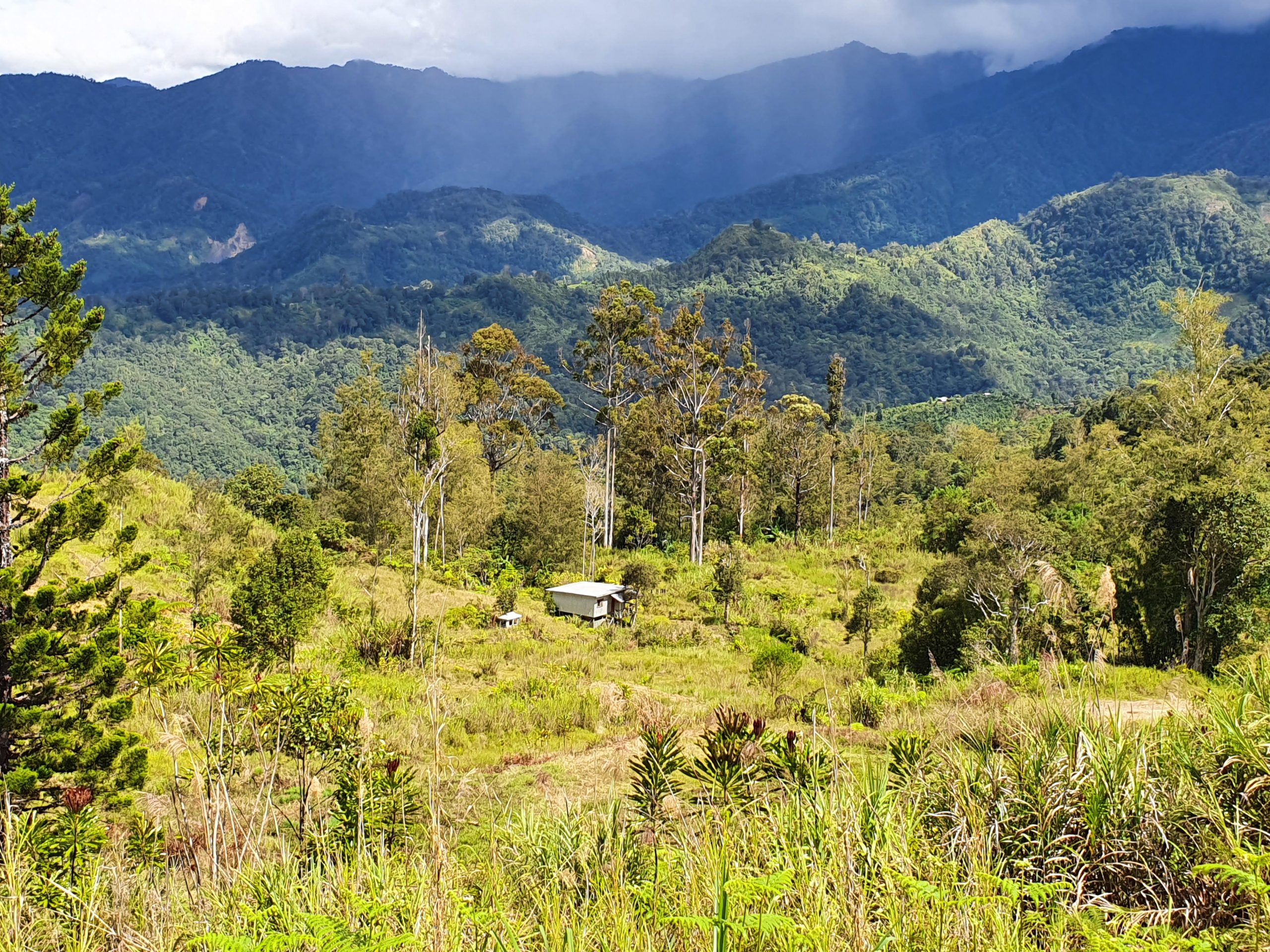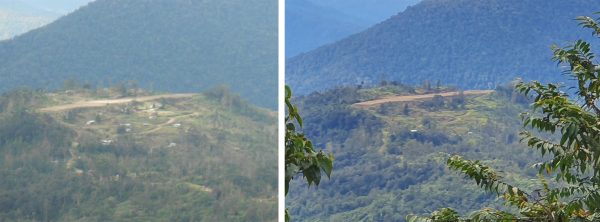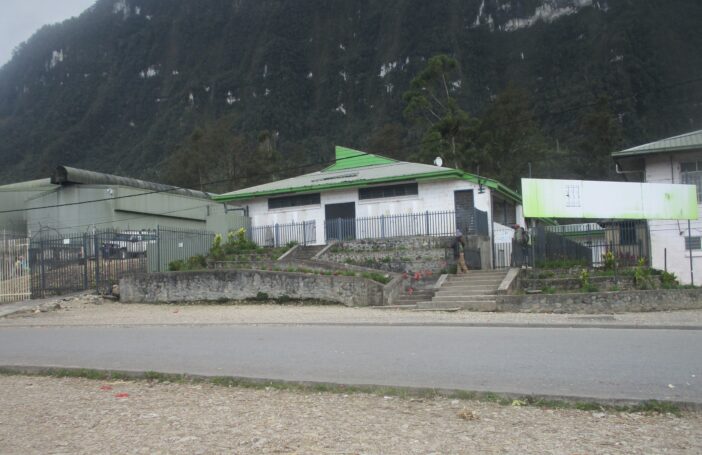Close to ten years ago, I penned a two-part personal story to highlight the sad tale of rural decay in Papua New Guinea (PNG). This situation is largely due to neglect by the relevant government authorities of far-flung towns and government outposts in the country, such as my district, Paiela-Hewa in Enga Province. Paiela-Hewa district was part of the Lagaip-Porgera electorate until it was split into two electorates (Lagaip and Porgera-Paiela) just before the 2022 national elections. The newly created Porgera-Paiela electorate covers four local-level government (LLG) areas – Porgera Urban LLG, Porgera Rural LLG, Maip-Mulitaka LLG and Paiela-Hewa LLG. According to the 2011 PNG national census, more than 20,000 people live in Paiela-Hewa LLG/district.
As mentioned in the earlier blogs, the closure of the airstrip in 1996 – the main connection to the outside world – ushered in many bad things for my district. It ultimately contributed to its total demise, as all key government services – including the community school which I attended as a boy, the health centre and the police station – shut down. Shrubs overgrew the road to nearby Porgera town.
Without effective, modern governance apparatus in the district, people resorted to traditional means of dispute resolution. With the proliferation of guns and the total breakdown in law and order, many tribal fights erupted, involving numerous tribes in the district, destroying property and claiming many lives, including some of my relatives and friends.
This has created a complex web of conflict that will take many years and resources to unpack and resolve. Children of Paiela-Hewa continue to miss out on a formal education, and as long as the district is in despair, many generations will be left behind. The implication for the nation is profound, if many rural districts of PNG remain cut off from the outside world.
The following photos, taken from the same location eight years apart, in 2012 and 2020, clearly show the deterioration of Kolombi station, the headquarters of Paiela-Hewa LLG. The bulk of the population of Kolombi was driven away by tribal fights. People also left in search of better opportunities, in the nearby goldmining district of Porgera and other major towns and cities in the country. The once bustling government outpost, which was established by early missionaries and the colonial government, has become a no-man’s land – the battlefield of the warring tribes in the district. The only buildings left untouched in Kolombi station are the churches – the rest, including all government buildings, have been razed to the ground.
Kolombi station in 2012 (left) and 2020 (right)
The people of my district do not deserve to live in despair for this long. If my district was able to organise itself from pre-independence to 1996, there is no reason why Kolombi station cannot be restored.
Each layer of government authority in PNG must take responsibility in the development process of the country, starting with the national and provincial governments, in partnership with the district development authority of each electorate. In my district’s case, the following key government agencies should have done better, and must now rise up to restore the district.
The national government needs to step up. Apart from paying salaries of public servants, the national government has had a minimal role in Paiela-Hewa’s development. Perhaps the tax credit scheme could be used by the Porgera gold mine (once it reopens) to fund key infrastructure such as the road, the airstrip, the primary school and the health centre.
The Enga provincial government has totally forgotten the district. In partnership with the Porgera-Paiela District Development Authority and the Paiela-Hewa LLG, the provincial government must now play a key role in reviving the district.
The Porgera Development Authority (PDA) is a unique government entity established to fund the development needs of Porgera-Paiela. It has been ravaged by mismanagement and corruption, which has affected service delivery in the electorate. A report by the PNG National Research Institute highlighted the disappearance of large sums of development funding with no trace, or any development impact, in Porgera and Paiela-Hewa districts. The PDA needs to be fixed.
The new MP of the new electorate of Porgera-Paiela has an important challenge to set the record straight and restore Paiela-Hewa using the annual allocation of District Services Improvement Program (DSIP) funds. Given the lack of governance and accountability in the use of DSIPs, the effectiveness and development impact of DSIP/electorate slush funds in PNG depend largely on the goodwill of the MP. Well-performing MPs, such as Lino Tom of Wabag District and Richard Maru of Yangoru-Saussia, have shown that, when used for their intended purposes, DSIPs can truly transform rural electorates in PNG.
The churches and missionaries – Catholic, Lutheran and Seventh Day Adventist – have remained in the district, and continue to hold the fort. People respect the churches. They must be important partners in the restoration of the district.
This is a typical story of the collapse of rural PNG in the last 30 years. The mid to late 1990s was a terrible period for development in PNG. The late Sir Mekere Morautu tried to fix some of these problems during his short stint as prime minister from 1999 to 2002. I lament that he was not re-elected prime minister after the 2002 national elections – if he had been, PNG might be in much better shape than it is today.
PNG needs visionary leaders who have the rural people of the country in their heart so that they execute policies, such as the DSIP, effectively to restore decaying districts like mine. The country needs leaders of the late Sir Mekere’s calibre, who know exactly what the key development challenges of this country are, and are not afraid to spend their political capital to fix them, without worrying about their political survival.
This is the third blog in an ongoing series.






Kolombi’s situation reflects a broader crisis in rural PNG, where government neglect, corruption, and weak leadership have allowed entire districts to collapse. Mr. Mako’s call for effective leadership, accountability, and government intervention applies to many struggling rural areas across the country.
What an informative and compelling piece by Andrew Anton Mako. If anyone needed further evidence that ‘technical capacity building’ is not the answer to Pacific Island development, this is it; as in all nations, power, conflict and leadership are the nexus and if donors want to have any influence in contributing to positive change, they seriously and intelligently need to engage with the realities that this author has so clearly outlined – and stop outsourcing this work to discredited ‘projectised’ modalities.
For Change and Challenge. Very good post. Amenewere.
The situation Andrew Mako describes could with a touch less tribal conflict apply to any group of rural LLG settings in PNG. The collapse of rural government and post-independence services is profound. Not only have government workers abandoned these areas but church services have also collapsed.
The situation is complex however a lack of funding is undoubtedly at the core of the issue as successive administrations have simply been unable or unwilling to support rural services in a meaningful manner.
In the absence of a profound change to funding and delivery arrangements there is little hope that the current top-down models of delivery will effect sustainable change.
The comment by Anna Gibert, that outsourcing “development” to projectized modalities that focus on technical assistance fails to address the root causes of rural services decline, is correct.
PNG communities have always been supremely self-reliant and within reason remain so. A month spent in rural settings that are devoid of services reveals that life continues as it always did inclusive of high maternal mortality and childhood death from preventable conditions.
It also reveals that people desperately want better services, employment for their youth, economic empowerment and that they would be willing to participate and partner in solutions to issues they need addressed.
It is to this latter point that I believe the greatest opportunity for sustainable change exists.
Ergo, directing a portion of the development effort towards empowering communities to address issues of important on their terms is a necessary piece of the assistance puzzle that is missing.
As Andrew said, lifting health, education, law & order and economic indicators involves unpacking the local issues and that cannot be done by centralised project structures. It does require working directly at the coal face and doing the hard yards with communities to arrive at mutually agreed solutions
It’s not pretty, it doesn’t make any one rich, it doesn’t necessarily win the local member any brownie points, it is slow and sometimes painful, but it works.
Sir Mekere Morauta, for whom I once had the privilege to work, understood that human capital development was a bottom-up process that started at the core of PNG society, the community. His vision therefore was set the economic structures in place to facilitate that process.
There have been other thinkers of his ilk, sadly now gone, each of whom placed community empowerment at the heart of their development vision.
I remain hopeful that the vision of these leaders will be seen and supported for what they are, the best pathway towards human capital development over the long haul in PNG.
Thank you for your comment, very thought provoking.
What an informative and compelling piece by Andrew Anton Mako. If anyone needed further evidence that ‘technical capacity building’ is not the answer to Pacific Island development, this is it; as in all nations, power, conflict and leadership are the nexus and if donors want to have any influence in contributing to positive change, they seriously and intelligently need to engage with the realities that this author has so clearly outlined – and stop outsourcing this work to discredited ‘projectised’ modalities.